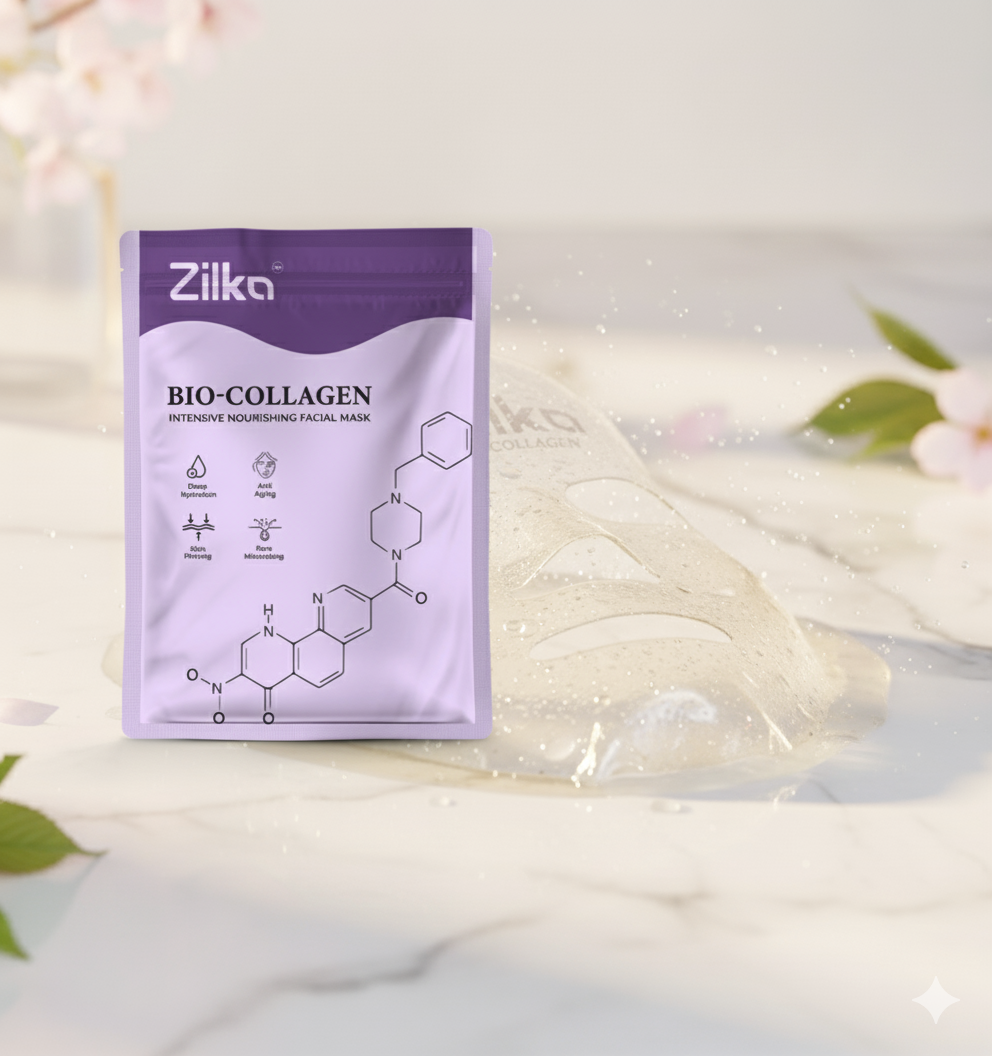
Collagen for Skin: A Deep Dive into the Science of Youthful Radiance
Introduction
In the pursuit of youthful, radiant skin, one ingredient has risen above the rest to capture the attention of beauty experts and consumers alike: collagen. We see it in creams, serums, masks, and supplements, all promising to turn back the clock and restore our skin's youthful glow. But what is the real science behind collagen for skin? How does this vital protein work its magic, and what are the most effective ways to harness its power? This deep dive will explore the intricate relationship between collagen and skin health, from the cellular level to the visible results.
Collagen's Role in Skin Structure and Health
Our skin is our body's largest organ, and it's a complex structure with multiple layers. The dermis, the middle layer of the skin, is where the magic of collagen happens. This layer is a dense network of connective tissue that is primarily composed of collagen and elastin fibers.
-
Collagen provides the skin with its strength and structure. Think of it as the framework that holds everything in place. It's responsible for the skin's firmness, plumpness, and resilience.
-
Elastin, as the name suggests, gives the skin its elasticity. It's what allows the skin to stretch and bounce back.
Together, collagen and elastin form a powerful duo that keeps our skin looking smooth, firm, and youthful. The dermis also contains fibroblasts, which are the cells responsible for producing new collagen and elastin.
The Aging Process and Collagen Decline
As we age, the production of collagen in our skin naturally begins to slow down. This process, known as intrinsic aging, is a normal part of life. However, several external factors, collectively known as extrinsic aging, can accelerate this decline:
-
Sun Exposure: UV radiation is the number one enemy of collagen. It creates free radicals, which are unstable molecules that can damage collagen fibers and inhibit the production of new collagen. This is why sun protection is the most important anti-aging step you can take.
-
Pollution: Environmental pollutants can also create free radicals and contribute to collagen degradation.
-
Lifestyle Factors: Smoking, a poor diet, and chronic stress can all take a toll on our skin's collagen levels.
As collagen levels decline, the structural integrity of the skin begins to weaken. The skin becomes thinner, less firm, and more prone to wrinkles and sagging.
Harnessing the Power of Collagen for Skin
The good news is that we're not powerless against collagen loss. There are several ways we can support our skin's collagen production and maintain a youthful complexion:
1. Topical Skincare
For years, the effectiveness of topical collagen was debated. However, modern skincare formulations have made significant advancements.
-
Collagen Peptides: Many of today's collagen creams and serums contain collagen peptides, which are smaller fragments of collagen that can penetrate the skin. These peptides can act as messengers, signaling to the fibroblasts to produce more collagen.
-
Collagen-Boosting Ingredients: In addition to collagen itself, there are several other ingredients that can help to stimulate collagen production:
-
Retinoids (Vitamin A): Retinol and other retinoids are considered the gold standard in anti-aging skincare. They work by increasing cell turnover and stimulating collagen synthesis.
-
Vitamin C: This powerful antioxidant not only protects the skin from free radical damage but is also essential for the production of collagen.
-
Niacinamide (Vitamin B3): This multitasking ingredient has been shown to improve skin elasticity and reduce the appearance of fine lines and wrinkles.
-
Growth Factors: These are proteins that can help to stimulate the growth of new cells, including fibroblasts.
-
2. Collagen Supplements
One of the most popular ways to boost collagen levels is through oral supplements. As we've discussed, these supplements provide the body with the amino acids it needs to build its own collagen.
Several studies have shown that taking collagen supplements can have a positive impact on skin health. A 2019 review of 11 studies found that taking collagen supplements for 4 to 24 weeks led to significant improvements in skin elasticity, hydration, and collagen density.
3. Professional Treatments
For those looking for more dramatic results, there are several professional treatments that can help to stimulate collagen production:
-
Microneedling: This treatment involves using a device with tiny needles to create micro-injuries in the skin. This triggers the body's natural healing response, which includes the production of new collagen.
-
Laser Resurfacing: This treatment uses a laser to remove the outer layer of the skin, which stimulates the growth of new, collagen-rich skin.
-
Radiofrequency (RF) Therapy: This non-invasive treatment uses heat to stimulate collagen production in the deeper layers of the skin.
A Holistic Approach to Healthy Skin
While skincare and supplements can be incredibly effective, it's important to remember that healthy skin starts from within. A holistic approach that includes a healthy diet, sun protection, and a consistent skincare routine will yield the best results.
-
Eat a Collagen-Boosting Diet: Include plenty of protein, vitamin C, zinc, and copper in your diet to support your body's natural collagen production.
-
Protect Your Skin from the Sun: Wear a broad-spectrum sunscreen with an SPF of 30 or higher every single day, rain or shine.
-
Be Consistent: Consistency is key when it comes to skincare. Stick with your routine for at least a few months to see the best results.
To truly harness the power of collagen for your skin, you need a method that masters the science of absorption. The Zilka Bio-Collagen Face Mask was engineered specifically for this purpose. It solves the biggest challenge in topical skincare by using ultra-low molecular bio-collagen, ensuring the peptides are small enough to penetrate deeply. Furthermore, its unique hydrogel format provides a slow, continuous infusion of these potent ingredients overnight, a delivery system far more effective than a standard cream or 20-minute mask. This scientifically superior approach makes it the most powerful way to achieve tangible firming and plumping results at home.
Conclusion
Collagen for skin is more than just a passing trend. It's a fundamental component of healthy, youthful-looking skin. By understanding the science behind how collagen works and taking a multifaceted approach that includes targeted skincare, supportive supplements, and a healthy lifestyle, you can effectively combat the signs of aging and maintain a radiant, resilient complexion for years to come.

